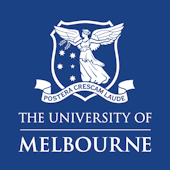Key research questions:
- How do self-regulatory orientations combine lead to successful goal pursuit?
- Are self-regulatory problems implicated in psychological disorders?
- What are the determinants of pro-environmental behaviour?
- How useful are implicit methods?
Publications
Books
Boldero, J., & Whelan, J. (2011). Australians’ attitudes toward culturally similar and culturally dissimilar migrants. In G. M. Ruggerio, S. Sassaroli, Y. Latzer, & S. Suchday (Eds.) Perspectives on immigration and terrorism(pp. 105-114). Amsterdam: IOS Press.
Boldero, J.M., Haslam., N., & Whelan, J. (2009). Increasing the predictive utility of neuroticism for health behaviors: The role of implicit neuroticism. In R. G. Jackson (Ed.). Psychology of neuroticism and shame. New York: Nova Science.
Boldero, J.M., & Francis, J.J. (2005). Situational influences on the intensity of emotional responses to self-evaluation. In A.V. Clark (Ed.). Psychology of moods. New York: Nova Science.
Clode, D., & Boldero, J. (2005). Keeping the doctor alive: A self-care guidebook for medical practitioners. South Melbourne: Royal Australian College of General Practitioners.
Peer-Reviewed Journal Articles
Boldero, J. M., & Bell, R. C. (in press). An evaluation of the factorial structure of the Problem Gambling Severity Index. International Gambling Studies.
Boldero, J. M., & Bell, R. C. (in press). Chance- and skill-based dimensions underlying young Australians’ gambling activities and their relationships with gambling problems and other factors. International Gambling Studies
Binder, G., & Boldero, J. (in press). Planning for change: The roles of habitual practice and habitus in planning practice. Urban Policy and Research.
Boldero, J. M., & Higgins, E. T. (2011). Regulatory focus and political decision making: When people favour reform over the status quo. Political Psychology, 32, 399-418.
Lin, X., Bryant, C., & Boldero, J., (2011). Measures for assessing student attitudes toward older people. Educational Gerontology, 37, 12-26.
Boldero, J. M., Bell, R. C., & Moore, S. M. (2010). Do gambling activity patterns predict gambling problems? A latent class analysis of gambling forms among Australian youth. International Gambling Studies, 10, 12-26.
Whelan, J., Laham, S. M., Peters, K., Boldero, J., & Kashima, Y. (2010). Regulatory focus and attitudes to migrants. International Journal of Psychology, 45, 190-201.
Boldero, J. M., Hulbert, C. A., Bloom, L., Cooper, J., Gilbert, F., Mooney, J. L., & Salinger, J. (2009). Rejection sensitivity and negative self-beliefs as mediators of associations between the number of borderline personality disorder features and self-reported adult attachment. Personality and Mental Health, 3, 248-262.
Boldero, J. M., Robins, G.L., Williams, B.J., Francis, J.J., Hampton, A., & Fourie, A. J. (2009). Relational discrepancies and emotion: The moderating role of relational mode and relational discrepancy valence.Asian Journal of Psychology, 12, 259-273.
Boldero, J. M., Rawlings, D., & Haslam, N. (2007). Convergence between GNAT-assessed implicit and explicit personality. European Journal of Personality, 21, 341–358.
Ouschan, L., Boldero, J. M., Kashima, Y., Wakimoto, R., & Kashima, E.S. (2007). Regulatory Focus Strategies Scale: A measure of individual differences in the endorsement of regulatory strategies. Asian Journal of Social Psychology, 10, 243–257.
Francis, J. J., Boldero, J. M., & Sambell, N. E. (2006). Self-Lines: A new, psychometrically sound, ‘user-friendly’ idiographic technique for assessing self-discrepancies. Cognitive Therapy and Research, 30, 69-84.
Parker, A. G., Boldero, J. M., & Bell, R. C. (2006). Borderline personality disorder: The role of self-discrepancies and self-complexity. Psychology and Psychotherapy: Theory, Research and Practice, 309-321.
Boldero, J. M., Moretti, M. M, Bell, R.C., & Francis, J. J. (2005). Self-discrepancies and negative affect: A primer on when to look for specificity, and how to find it. Australian Journal of Psychology, 57, 139-147.
Experience
-
–presentAssociate Professor in Psychological Sciences, University of Melbourne
Education
-
1990University of Melbourne, PhD
- Article Feed
- Joined


